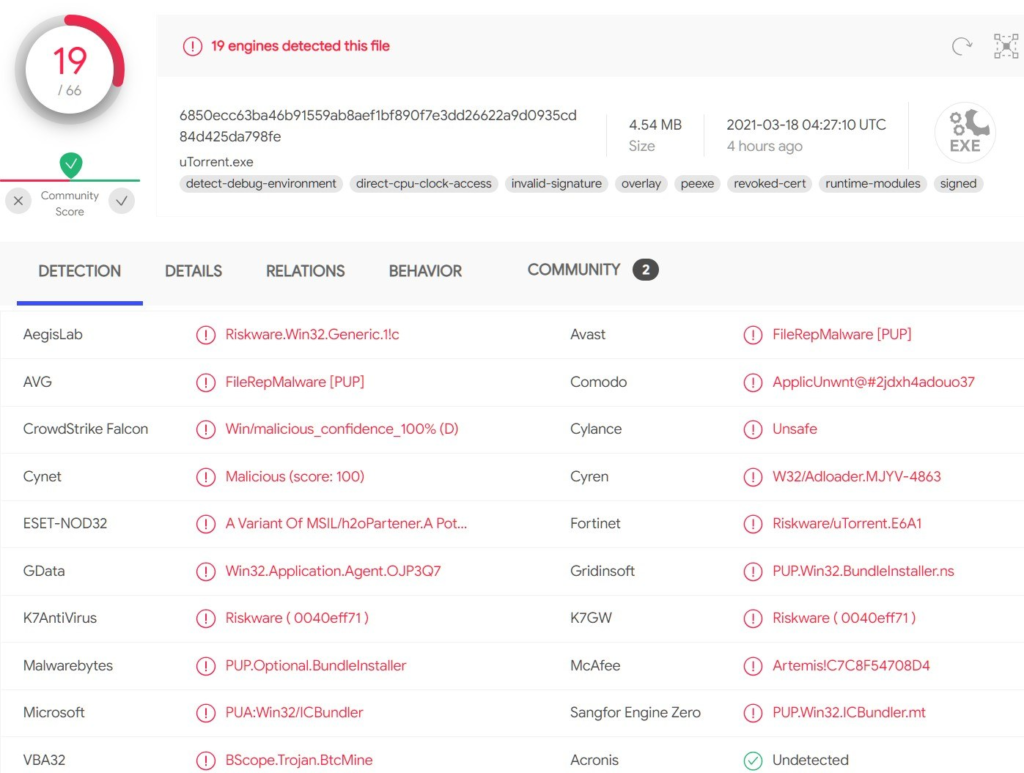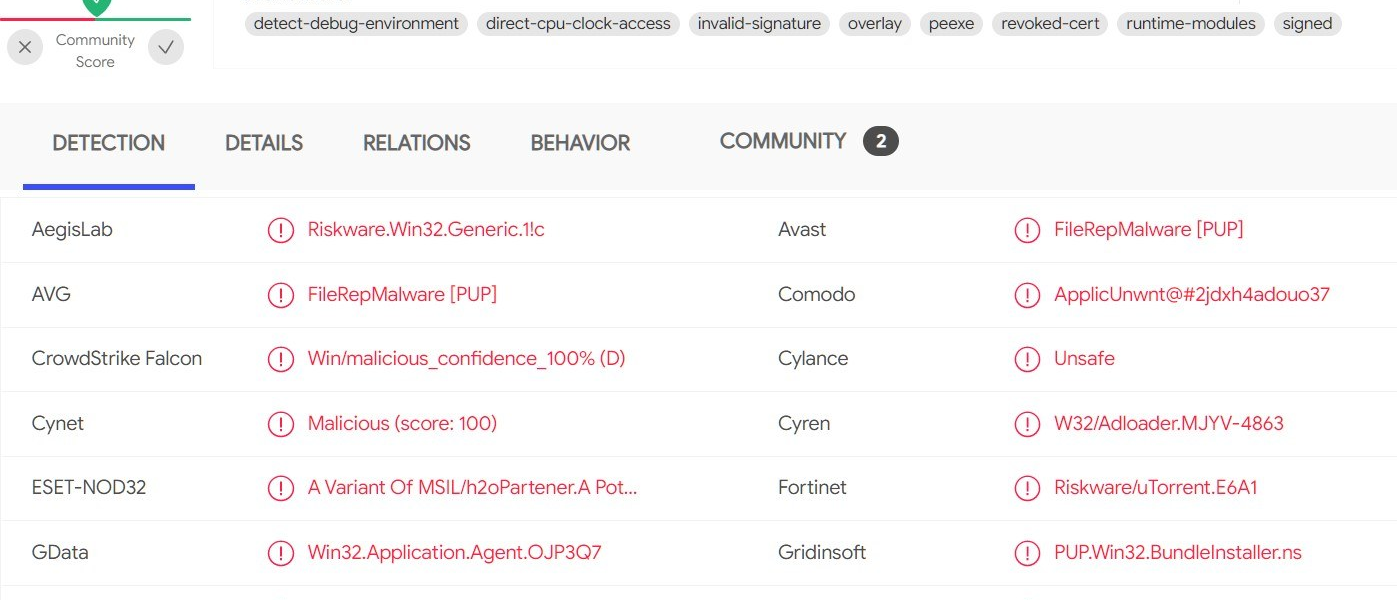It seems that the once-beloved BitTorrent client uTorrent is facing renewed scrutiny from antivirus vendors, with Microsoft’s Windows Defender taking a particularly aggressive stance by outright removing the application from users’ systems. Reports indicate that uTorrent, along with rival client qBitTorrent, is being flagged as ‘riskware,’ ‘malware,’ and ‘potentially unwanted software.’
This latest wave of concern surrounding uTorrent and qBitTorrent highlights the growing challenges faced by users in navigating the torrenting landscape. While these clients have long been popular choices for accessing shared content, their reputation is now under scrutiny due to the perceived risks associated with their use.
For users, this development underscores the importance of exercising caution and staying informed about the software they choose to download and install. As the torrenting landscape evolves, it’s essential to stay vigilant and explore alternative options that prioritize security and reliability.
Despite its widespread popularity, uTorrent, installed on countless devices worldwide, is facing renewed scrutiny amid concerns about its safety and potential malicious activity.
Research conducted last year revealed that a significant majority of BitTorrent users, amounting to roughly two-thirds, continue to favor uTorrent over other available alternatives. Despite efforts by the uTorrent team to introduce a web-based version of the software in 2018, the standalone client remains the preferred choice for most users.
However, the torrent client’s reputation has been marred by recurring issues as it has been flagged as ‘malicious’ software on multiple occasions in recent years. This problem has resurfaced once again, with various antivirus tools, including Windows Defender and Malwarebytes, now categorizing uTorrent as a potential threat.
A recent scan using Virustotal revealed that uTorrent is flagged by 19 separate companies, with reasons ranging from “riskware” to “Trojan.BtcMine” to “bundled installer.” These findings raise concerns among users about the safety and integrity of the software, prompting many to reconsider their choice of torrent client.

Microsoft’s classification of uTorrent as a “Potentially Unwanted Application” (PUA) underscores the ongoing concerns surrounding the software’s safety. This categorization has been a consistent issue, with Microsoft maintaining a dedicated page for uTorrent in its malware database for years, warning users about its potential risks.
While the term “potentially unwanted software” may sound relatively benign, its implications can be significant. It encompasses a wide range of behaviors, from altering browser settings to unauthorized installation of third-party tools, all of which can disrupt users’ systems and compromise their privacy. It’s worth noting that Microsoft distinguishes PUAs from malware, indicating that while they may not be inherently malicious, they can still have adverse effects on users’ experiences.
Recent reports indicate that users have encountered difficulties with uTorrent, including instances where the software was removed from their systems by antivirus tools and subsequent attempts to reinstall it were unsuccessful. Similar issues have been observed with qBitTorrent, another popular torrent client, which was also flagged by Microsoft as a PUA.
This development has prompted frustration and confusion among users, with many voicing their concerns on social media platforms and community forums. Complaints about Windows Defender silently removing qBitTorrent despite explicit permissions highlight the challenges faced by users trying to navigate these security measures.

The speculation about organized action against torrent clients is not without merit, especially considering that numerous other torrent clients are also facing similar issues of being flagged as unwanted software. This pattern extends beyond just uTorrent and qBitTorrent, with Microsoft’s own documentation suggesting that torrent clients fall into the category of unwanted software, alongside advertising programs and cryptominers.
While Microsoft indicates that this classification primarily applies to enterprise environments, the complaints from users indicate that individuals running various versions of Windows are also affected. This discrepancy raises questions about the broader implications of such categorizations and their potential impact on users’ freedom to choose and use software according to their preferences.

The discrepancy between Microsoft’s characterization of unwanted software and its classification in the malware encyclopedia raises questions about the severity of the threat posed by programs like uTorrent. While Microsoft’s article emphasizes that unwanted software is distinct from malware, Windows Defender categorizes potentially unwanted applications (PUAs) as a “severe threat,” leading to confusion among users.
The disparity in detection between uTorrent and qBitTorrent on the Virustotal scan suggests that Microsoft’s blocking may be influenced by the torrent client category rather than specific security risks. While it’s important to heed antivirus warnings, users have options to install these programs safely, such as disabling PUA protection in Windows or switching to third-party antivirus software.
Despite reaching out to uTorrent and qBitTorrent teams for comment, there has been no response yet. Microsoft clarified to TorrentFreak that torrent clients are blocked as PUAs on enterprise machines based on specific criteria, which may also trigger detection in other environments due to different criteria or settings.







